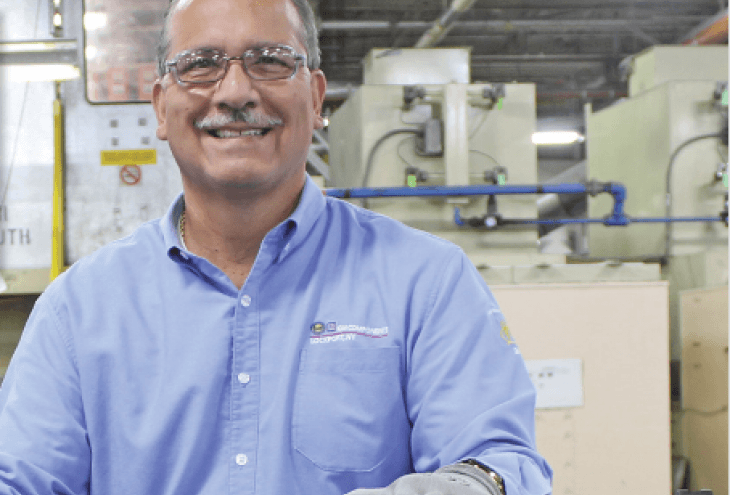When William Tiger was in the fourth grade he made the trek from his home in Florida to Washington, D.C. It wasn’t a school trip to tour the city’s monuments and visit the museums. Instead, Tiger ventured to the nation’s capital with three adults from his Miccosukee Tribe to appear before a U.S. Senate subcommittee meeting chaired by Robert Kennedy.
The point of the gathering was to highlight the dearth of educational opportunity available to the tribe. “I was a prop because I was in the fourth grade and had more formal education than all three of the adults with me combined,” remembers Tiger, winner of the 2017 Professional of the Year Award. “That’s not all that long ago.”
It’s no exaggeration to say that Tiger has spent a large portion of his adult life trying to extend as much opportunity to Native children as possible. In part, Tiger has done this through the force of his own example. Not only did he obtain both a BS in mechanical and electrical engineering from the General Motors Institute and an MS in engineering from Rensselaer Polytechnic Institute, Tiger has had a remarkable career with GM.
For nearly four decades, Tiger has held a series of positions with escalating responsibilities — everything from project engineer to his current role as plant manager for GM’s Lockport, N.Y., facility, where he oversees more than 1,000 employees and is responsible for a budget of close to $150 million. This most recent position in western New York is his fifth different GM plant and the second where Tiger has been a plant manager. It’s a journey that still amazes Tiger, who was the first in his family to graduate from college. “With my career at GM, I’ve been able to go to Japan and Italy and Germany and all over the U.S.,” he says. “So many times I’ve been to places that I remember reading about in books, never dreaming I’d ever be there.”
At each stop throughout his career Tiger has made a significant personal effort to reach out to local tribes to both connect them to GM and to encourage the young people to pursue a STEM path.
Even though his education and career have taken him far from his youth in Florida, Tiger has never forgotten his roots. At each stop throughout his career Tiger has made a significant personal effort to reach out to local tribes to both connect them to GM and to encourage the young people to pursue a STEM path.
His current post in Lockport is no exception, and Tiger has invited many students to visit the plant. “We bring them to the plant and show them that if they like math and science, here’s what engineers do. They meet them and go out on the floor,” explains Tiger, who notes that he always tries to link Native students with Native workers to help strengthen the connection and meaning of the visit. “If they’re not inclined toward engineering, we also show them how math and science apply if you want to be an operator or enter the skilled trades,” he says.
Even Native students who don’t live in western New York have benefited from Tiger’s efforts to expand opportunity. With help from the GM Foundation, AISES, and other companies, Tiger has helped jump-start robotics programs at about a dozen schools around the country. This initiative has enabled schools to offer valuable education and training to their students, and the robotics program has been the basis for an annual competition that gives Native students the chance to demonstrate their new skills.
In some ways, Tiger’s motivation to help Native students is the result of his own experience pursuing an education — an experience that took him away from home for the first time and saw the previously stellar student struggling. “I was failing in calculus and chemistry, which are both kind of important if you want to be an engineer,” he says. “I had never failed a class in my life and didn’t know what hit me.”
But Tiger got help from his professors and persevered until everything started to click. It’s a lesson he wants young people to remember because he knows firsthand just how badly companies like GM want to hire them. “All companies want to recruit and retain more minority engineers,” he says. “I want students to understand that when you do stick with it and graduate, there are a lot of opportunities on the other side. The fact of the matter is that you are a precious commodity.”











